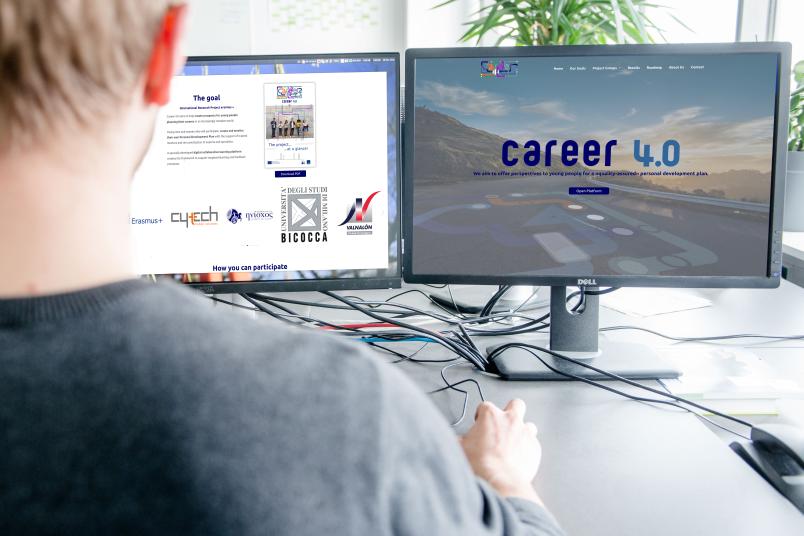
Project launch Career Intelligence for young adults
Bochum's work scientists are launching their seventh EU project in a row. This time, artificial intelligence is to support young people in their career orientation.
How artificial intelligence (AI) can best support young people in developing professional perspectives and planning their careers is being researched by a European team led by the Institute of Work Science at Ruhr-Universität Bochum (RUB). This also involves promoting entrepreneurial thinking and action at an early stage. The "Career Intelligence" project is being funded by the European Union (EU) for two and a half years with around 500,000 euros. It is the seventh EU project that Bochum work scientists have been able to recruit together with partners from Europe. Two of these EU projects (Enterprise+ and Career 4.0) were awarded as best practice projects by the EU. In terms of content, the new project ties in with the "Career 4.0" project.
Precise feedback for young people
The starting signal for the new "Career Intelligence" project was given at a kick-off on the Greek island of Crete at the end of July, 2022. The Institute of Work Science (IAW) at RUB works closely with researchers from Greece, Hungary, Bulgaria and Finland, among other countries. "With the help of artificial intelligence and by of individually tailored feedback, we want to give all young people the opportunity to follow their own path," Bochum project leader Professor Martin Kröll from IAW explains.
Improving the personal development plan
The project builds on the results of the EU project "Career 4.0". In this project, an international research team developed a learning platform that promotes entrepreneurial thinking and action among young people as well as their digital skills across national borders in Europe. On this basis, the partners of the project now want to answer the central question of "why": "That means we get to the bottom of why and which AI tools we have to use to increase the benefit of the learning platform for young people," Martin Kröll explains. "Now all activities around the use of AI in the context of the learning platform serve to improve the personal development plan of young people as well as to significantly increase the number of young people who can use the learning platform for themselves," he summarizes the project goals.
Project pars pro toto
"The seventh EU funding in a row is an outstanding success for Bochum's work science," Professor Kornelia Freitag, Vice-Rrector for Academic Affairs, joyously highlights. "Career Intelligence, like Career 4.0 before it, perfectly fits with the RUB's overall strategy: we want to promote entrepreneurship among young people, advance internationalization, link research and teaching even more closely and, in the long term, use AI sensibly in education. This project is pars pro toto."
The acquisition of digital competences and the increased use of digital tools are a current topic at the national and European level. The learning platform could be interesting for many organizations, especially for universities, associations, companies and those working in the thematic spectrum of education and training.
The learning platform as a "journey“
The learning platform developed within the framework of the EU project "Career 4.0" can already be used in other EU countries in the respective national languages, for example in Hungary, Bulgaria, Germany, Greece, Italy and Spain, and there exists an international version in English as well. It makes sense to view the work and activities of the young people in the learning platform as a "journey". In the sense of an analogy, it is about determining the "place of travel" (Where do I want to go professionally?), then "planning the journey" (What do I need to reach my destination?), "carrying out the journey" (How do I successfully organize my learning process?) and finally, what have I taken with me from the journey. Assistance and guidance at all these stages is provided by AI tools such as chatbots, so-called adaptive learning systems and case-based recommendation systems.
"We know from our previous projects that young people demand such interactive offers and that they like to get individual feedback. We now have to work on ensuring that this feedback leads to the right decisions," Martin Kröll states.